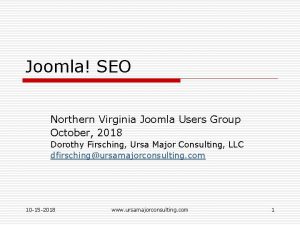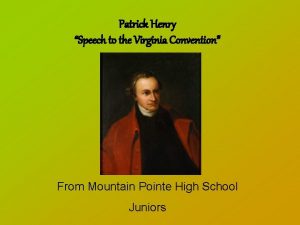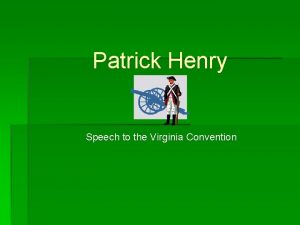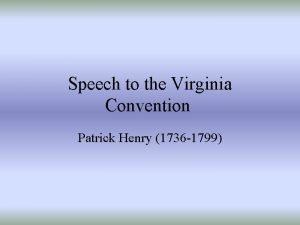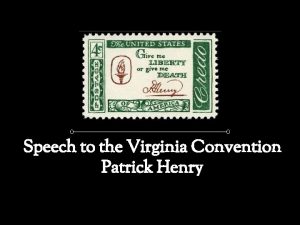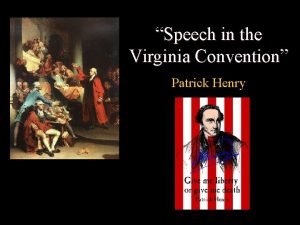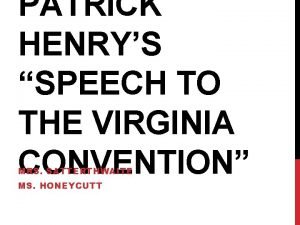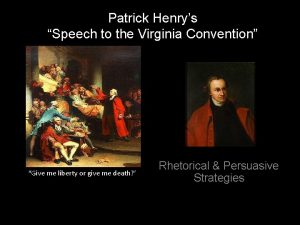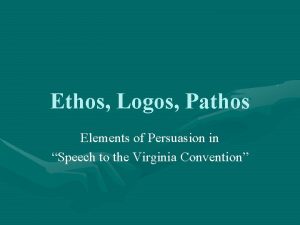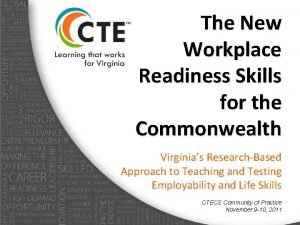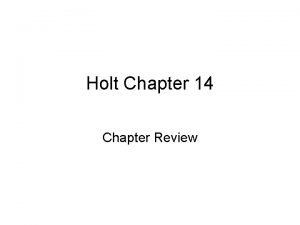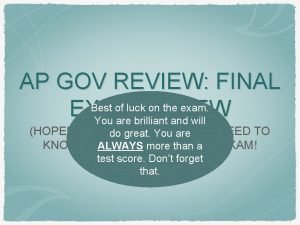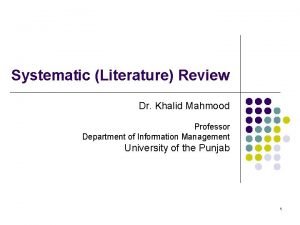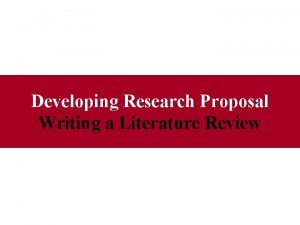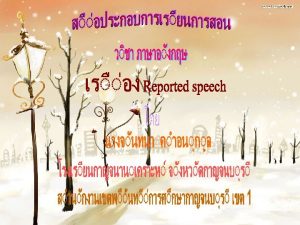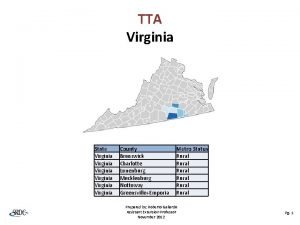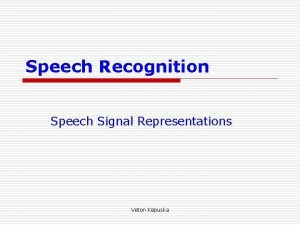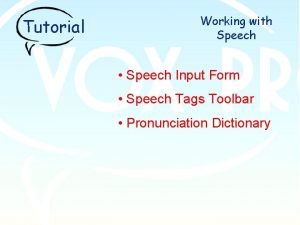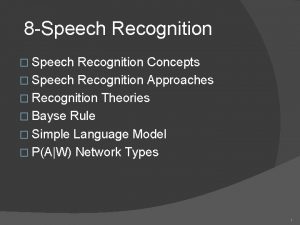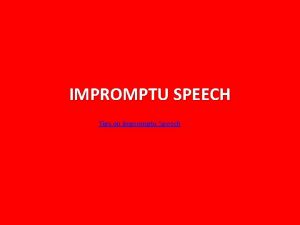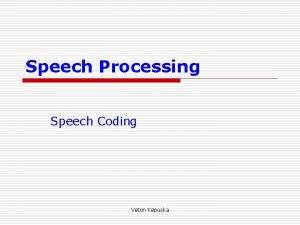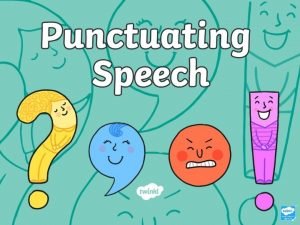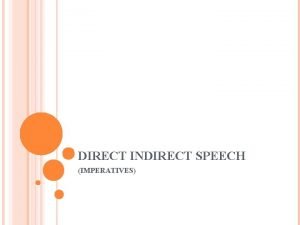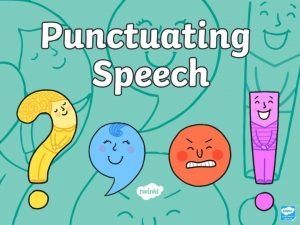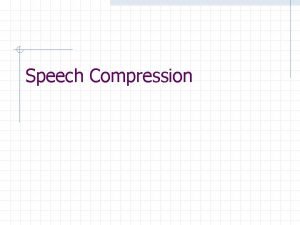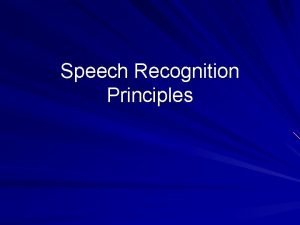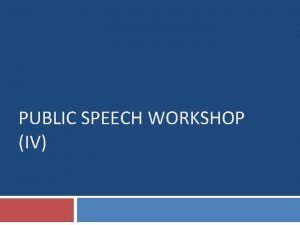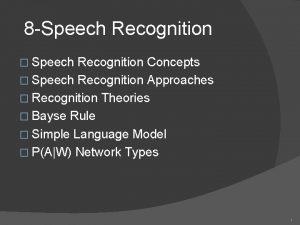Test Review 1 In Speech in the Virginia

























































- Slides: 57

Test Review

1. In “Speech in the Virginia Convention, ” Patrick Henry says, surprisingly, that he must take a certain action against England in order to be a true patriot. What is this action? a. support England's actions b. speak out against England c. become an officer in the army d. agree with the other speakers

2. A rhetorical question asks a question in which the answer is already known. What would be the answer to the questions Henry asks in this passage from “Speech in the Virginia Convention”? And what have we to oppose them [the British government]? Shall we try argument? a. Yes, let us fight them with arguments. b. No, we should not fight against them. There is no point to it. c. We have nothing to fight them with, because arguments don't work. d. Let us try to find a new way to work together with them, if we can.

3. What action does Henry want his audience to take in “Speech in the Virginia Convention”? a. to pay unpopular taxes b. to join the British Army c. to work for peace d. to fight Britain

4. In “Speech in the Virginia Convention, ” what emotion does Henry say is natural to people but should not be trusted in dealings with Britain? a. anger b. humor c. hope d. love

5. In “Speech in the Virginia Convention, ” which passage appeals to the reader's sense of reason? a. His actions are guided by “the lamp of experience. ” b. He is willing to know the truth “whatever anguish of spirit it may cause. ” c. He shouts, “I repeat it sir, we must fight!!” d. He tells the others he wants freedom “or … death!”

6. What “storm” does Henry say approaches the new nation? a. British troops and warships b. disagreements among speakers c. war with Great Britain d. an east coast hurricane

7. When Patrick Henry ends his speech with “… give me liberty or give me death, ” he repeats words. What else does he repeat in this phrase? a. nothing else b. the structure of a question followed by another question c. the lessons he once learned as a young man d. the structure of a verb followed by a pronoun and a noun

8. Which statement from “Speech in the Virginia Convention” appeals to the reader's emotions? a. “But different men often see the same subject in different lights …” b. “The war is inevitable—and let it come! I repeat it, sir, let it come!” c. “I know of no way of judging the future but by the past …” d. “What terms shall we find that have not already been exhausted? ”

9. What does Franklin say as a sort of confession in “Speech in the Convention”? a. He does not completely approve of the document but supports it anyway. b. He was impressed that the delegates wrote the Constitution on their first try. c. He has never met many of the delegates but likes them now. d. He did not realize how smart the delegates were.

10. In “Speech in the Convention, ” Franklin mentions a woman who says, “But I meet with nobody but myself that is always in the right. ” Which sentence is a restatement of this idea? a. Have I met with you before? b. I meet with many people who think correctly. c. I meet with many people each day. d. I never find errors in my own thinking.

11. In “Speech in the Convention, ” why does Franklin think the delegates should keep their concerns about the Constitution to themselves? a. He thinks their criticisms should never have been made in the first place. b. He wants the public to have confidence in the government. c. He thinks the Constitution is perfect and needs no changes. d. He thinks the document will lead to a perfect form of government.

12. What is Jefferson's main form of persuasion in The Declaration of Independence? a. He has an unusual view of how government should work. b. He understands that the colonists should explain their actions. c. He offers a list of colonists' complaints against the British king. d. He asks colonists to contribute their fortunes to the cause.

13. Which phrase from the Declaration of Independence is charged, or filled with emotion? a. “for the public good” b. “without consent” c. “death, desolation, and tyranny” d. “in the most humble terms”

14. Why is Jefferson's list of self-evident truths effective in the Declaration of Independence? a. It helps his audience understand him. b. It restates beliefs people already have. c. It tells people about Jefferson's beliefs. d. It outlines a new vision of freedom.

15. What overall announcement does the Declaration of Independence make? a. The colonists share news of the war with Great Britain. b. The colonists refuse to pay unfair taxes to Great Britain. c. The colonists declare a separation from Great Britain. d. The colonists sign new agreements with Great Britain.

16. In The Crisis, Number 1, what concern does Paine express about “the sunshine patriot” who might “shrink from the service of his country”? a. He wants people to live in the colonies during the summer months. b. He wants people to leave the colonies and go to Britain. c. He wants people to be willing to fight, even at great risk. d. He wants people to be training to be soldiers all year.

17. In The Crisis, Number 1, what does Paine try to convince his listeners to fight for? a. property b. lower taxes c. trade items d. freedom

18. Where does Paine use charged words in these examples from The Crisis, Number 1? a. He says he has “little superstition. ” b. He says it does not matter “what rank of life you hold. ” c. He says “Tyranny” is like “Hell. ” d. He says men know the difference between “temper” and “principle. ”

19. In The Crisis, Number 1, when Paine compares the colonies' relationship with Britain to the chains of slavery, what emotion does he hope to persuade his readers to feel? a. anger b. hope c. confusion d. relief

20. Why does Paine write in The Crisis, Number 1, that a generous parent would say: “If there must be trouble let it be in my day, that my child may have peace”? a. to fight now so that their descendants will not have to b. to put off the fight until their descendants are grown c. to avoid having to fight, to protect their descendants d. to ignore the problem altogether and hope for the best

21. Which phrase from The Crisis, Number 1 includes charged words? a. The heart that feels b. will curse his cowardice c. shrinks back at a time d. and made them happy

22. What is the main idea of Paine's essay The Crisis, Number 1? a. The King of England is a criminal. b. British people must return to England. c. The colonists must pay taxes. d. The colonists must fight tyranny.

23. In which sentence is the meaning of the word unanimity suggested? a. Franklin urged every member of the Convention to sign the Constitution. b. Franklin praised the high quality of the new Constitution. c. Franklin found he doubted his judgments more as he grew older. d. Franklin wanted other nations to approve of the new Constitution.

24. Which of the following groups would contain churchgoers? a. sects b. subjugation c. privileges d. despotism

25. In which of the following sentences is the meaning of the word perfidy suggested? a. The Declaration lists the colonists' complaints. b. The Declaration suggests that the king has betrayed the colonists' trust. c. The Declaration sets out a vision of what makes a good government. d. The Declaration explains why the colonists seek independence.

26. When Jefferson spoke of British officers sent to harass the colonists, he meant that they a. tried to get the colonists to convert b. constantly engaged them in conversation c. were a constant bother d. never treated them fairly

27. When Jefferson spoke of redress from Great Britain, he referred to a. receiving compensation for wrong-doings. b. their military uniforms. c. the system of communication they used. d. a speech given by King George.

28. What does Jefferson mean when he says that the British are “deaf to the voice of … consanguinity”? a. They do not follow the teaching of religion. b. They take no account of their kinship with the colonists. c. They enjoy being tyrannical. d. They are too busy to listen to the colonists.

29. When Henry refers to recent British acts as “implements of war and subjugation, ” he is referring to a. the various tax laws they have imposed b. the stationing of British officials throughout town c. their attitude of superiority over any person from the new nation d. their preparation to conquer America

30. In his speech, Henry says that to participate in battle, people must be brave and vigilant, which means a. experienced b. alert to danger c. firm in one’s beliefs d. spontaneous

31. When Franklin states that a failed government usually ends in despotism, he is saying it a. must begin again b. ends in tyranny c. has failed at absolute rule d. can never be as great as it previously was

32. Franklin argues that unanimity is an important part of their acceptance because a. it shows strength b. there is less arguing c. no one usually attains it d. the process will move faster

43. What general observation does Paine express in the statement, “What we obtain too cheap, we esteem too lightly”? a. When something is hard to do, the achievement will be less rewarding. b. If you gain something too easily, it will not seem that important to you. c. Those who are wealthy can afford to be choosy. d. When your cause is just, there is no reason not to pursue it to the end.

44. When Paine compares America's relationship with England to the bondage of slavery, to what emotion is he appealing? a. anger b. joy c. happiness d. hope

45. Paine's primary purpose in saying that “a common murderer, a highwayman, or a housebreaker, has as good a pretense” as the king is to a. show the common criminal is persecuted by the king's representatives. b. emphasize the notion of democracy. c. stress the lawlessness of the king's actions. d. appeal to his audience's fear of crime.

46. Identify one reason Paine gives for supporting the fight for liberty. a. faith that God will reward the weak and powerless b. responsibility to ensure that all people are treated equally c. shame that the colonies have been afraid to break away from Britain d. duty to provide a better life for one's family

47. What is the main point of Paine's essay? a. The time for armed struggle is over. b. Colonists who support Britain are weak and cowardly. c. The king of Britain is a fool. d. The colonists must endure.

48. With what does Paine compare America's war against the British? a. murder b. all the treasures of the world c. a man defending his property d. a thief breaking into his house

49. Paine uses “summer soldier” and “sunshine patriot” to refer to a. those who support the Revolution only when it is convenient. b. revolutionary soldiers who keep their spirits up. c. agricultural workers who have joined the revolutionary army. d. Tories.

50. Which of the following passages from The Crisis, Number 1, introduces an anecdote meant to persuade the audience? a. “I have as little superstition in me as any man living. ” b. “[A] noted one, who kept a tavern at Amboy, was standing at his door, with as pretty a child in his hand. ” c. “The far and the near, the home counties and the back, the rich and the poor, will suffer or rejoice alike. ” d. “‘Tis the business of little minds to shrink. ”

51. From Jefferson's statement that governments are instituted to secure basic human rights, the argument logically follows that a. any form of government that suppresses people's freedoms should be overthrown. b. monarchy is a bad form of government because rulers are not elected. c. the rights of men should be supported over those of women. d. all forms of government destroy human rights and thus should be abandoned.

52. From the Declaration of Independence, what can be inferred about Jefferson's general attitude toward revolution? a. All cases of injustice vindicate a revolution. b. People often revolt as their first course of action. c. Revolution is a method of last resort. d. Revolution is a very poor way of dealing with conflict.

53. Jefferson uses the charged word tyrant to characterize the king of Britain. To what emotion does this word appeal? a. sorrow b. envy c. anger d. pride

54. Which of the following statements most appeals to the emotions of horror and disgust? a. “He is at this time transporting large armies … to complete the works of death, desolation, and tyranny, already begun. ” b. “He has abdicated government here, by declaring us out of his protection and waging war against us. ” c. “He has dissolved representative houses repeatedly …. ” d. “He has called together legislative bodies … for the sole purpose of fatiguing them into compliance with his measures. ”

55. Jefferson's list of self-evident truths is effective because it a. helps his audience understand the truths. b. creates a connection between these truths and the colonists' attempts at reconciliation with Britain. c. draws his readers' attention to his personal opinions about humanity. d. imparts a sense of reasonableness to the beginning of his argument.

56. The main purpose of Henry's speech is to a. convince the colonists that Britain will not fight. b. maintain peace in America at all costs. c. persuade the colonists to enter into war against Britain. d. persuade his audience that Henry would make a good president.

57. What is the “storm” that Henry predicts is approaching? a. an argument during the Convention b. a hurricane from the south c. the wrath of God d. the war with Britain

58. Which of these remarks uses logical arguments to appeal to reason? a. “Are we disposed to be of the number of those who having eyes see not, and having ears hear not the things which so nearly concern their temporal salvation? ” b. “There is no retreat but in submission and slavery!” c. “The next gale that sweeps from the north will bring to our ears the clash of resounding arms!” d. “I ask gentlemen, sir, what means this martial array, if its purpose be not to force us to submission? ”

59. Which technique of speeches does Henry use in the sentence “Is this the part of wise men, engaged in a great and arduous struggle for liberty? ” a. repetition b. parallelism c. rhetorical question d. restatement

60. In which of these statements does Henry use parallelism? a. “Mr. President, it is natural to man to indulge in the illusions of hope. ” b. “We have petitioned; we have remonstrated; we have supplicated. ” c. “Is it that insidious smile with which our petition has been lately received? ” d. “Our brethren are already in the field! Why stand we here idle? ”

61. Henry uses a rational argument to convince his readers that a. chains and slavery will be the result of continued inaction by the colonies. b. the war is inevitable and the colonies must fight. c. the past conduct of the British government proves that England has no intention of granting the colonies' petitions. d. death would be better than a forced loss of colonial liberty.

62. Which of the following quotes from Henry’s speech appeals to a friendly audience? a. “An appeal to arms and to the God of Hosts is all that is left us!” b. “But when shall we be stronger? ” c. “Our brethren are already in the field!” d. “I know not what course others may take; but as for me, give me liberty or give me death!”

63. What argument does Henry use to gain support from a friendly as well as a hostile audience? a. He promises the new nation will be stronger than before. b. He exclaims that the war has already begun. c. He offers a growing list of negative conditions about the British occupation. d. He compliments the other members who have shared their ideas.

64. What is the main point of Benjamin Franklin's speech in the Convention? a. The Constitution is too weak to be approved by the Convention. b. His doubts about the Constitution are too strong to allow him to support it, but he hopes others will. c. The Convention should support the Constitution because they have shown infallibility in the past. d. The Convention should support the Constitution because it is as good as it is likely to be.

65. Which technique of speeches does Franklin use in this passage? From such an assembly can a perfect production be expected? a. restatement b. repetition c. rhetorical question d. parallelism

66. Why does Franklin want the delegates to the Convention to support the Constitution strongly despite any personal reservations about it? a. to inspire public confidence in their leadership b. because he believes it is perfect c. because that means it will be administered well d. because it is a product of their joint wisdom
 Northern virginia seo
Northern virginia seo Algebra 2 unit 1 practice test
Algebra 2 unit 1 practice test Examples of restatement in patrick henry's speech
Examples of restatement in patrick henry's speech Parallel structure in speech to the virginia convention
Parallel structure in speech to the virginia convention Intolerable acts simple definition
Intolerable acts simple definition Speech to the virginia convention soapstone
Speech to the virginia convention soapstone Patrick henry speech rhetorical devices
Patrick henry speech rhetorical devices The original audience for patrick henry's speech was _____.
The original audience for patrick henry's speech was _____. Speech to the virginia convention soapstone
Speech to the virginia convention soapstone Ethos speech definition
Ethos speech definition Hát kết hợp bộ gõ cơ thể
Hát kết hợp bộ gõ cơ thể Slidetodoc
Slidetodoc Bổ thể
Bổ thể Tỉ lệ cơ thể trẻ em
Tỉ lệ cơ thể trẻ em Voi kéo gỗ như thế nào
Voi kéo gỗ như thế nào Chụp tư thế worms-breton
Chụp tư thế worms-breton Hát lên người ơi alleluia
Hát lên người ơi alleluia Kể tên các môn thể thao
Kể tên các môn thể thao Thế nào là hệ số cao nhất
Thế nào là hệ số cao nhất Các châu lục và đại dương trên thế giới
Các châu lục và đại dương trên thế giới Công thức tiính động năng
Công thức tiính động năng Trời xanh đây là của chúng ta thể thơ
Trời xanh đây là của chúng ta thể thơ Mật thư tọa độ 5x5
Mật thư tọa độ 5x5 101012 bằng
101012 bằng Phản ứng thế ankan
Phản ứng thế ankan Các châu lục và đại dương trên thế giới
Các châu lục và đại dương trên thế giới Thể thơ truyền thống
Thể thơ truyền thống Quá trình desamine hóa có thể tạo ra
Quá trình desamine hóa có thể tạo ra Một số thể thơ truyền thống
Một số thể thơ truyền thống Cái miệng xinh xinh thế chỉ nói điều hay thôi
Cái miệng xinh xinh thế chỉ nói điều hay thôi Vẽ hình chiếu vuông góc của vật thể sau
Vẽ hình chiếu vuông góc của vật thể sau Thế nào là sự mỏi cơ
Thế nào là sự mỏi cơ đặc điểm cơ thể của người tối cổ
đặc điểm cơ thể của người tối cổ Thế nào là giọng cùng tên? *
Thế nào là giọng cùng tên? * Vẽ hình chiếu đứng bằng cạnh của vật thể
Vẽ hình chiếu đứng bằng cạnh của vật thể Vẽ hình chiếu vuông góc của vật thể sau
Vẽ hình chiếu vuông góc của vật thể sau Thẻ vin
Thẻ vin đại từ thay thế
đại từ thay thế điện thế nghỉ
điện thế nghỉ Tư thế ngồi viết
Tư thế ngồi viết Diễn thế sinh thái là
Diễn thế sinh thái là Dot
Dot Thế nào là số nguyên tố
Thế nào là số nguyên tố Tư thế ngồi viết
Tư thế ngồi viết Lời thề hippocrates
Lời thề hippocrates Thiếu nhi thế giới liên hoan
Thiếu nhi thế giới liên hoan ưu thế lai là gì
ưu thế lai là gì Sự nuôi và dạy con của hổ
Sự nuôi và dạy con của hổ Khi nào hổ mẹ dạy hổ con săn mồi
Khi nào hổ mẹ dạy hổ con săn mồi Hệ hô hấp
Hệ hô hấp Từ ngữ thể hiện lòng nhân hậu
Từ ngữ thể hiện lòng nhân hậu Thế nào là mạng điện lắp đặt kiểu nổi
Thế nào là mạng điện lắp đặt kiểu nổi Workplace readiness test virginia
Workplace readiness test virginia Chapter review motion part a vocabulary review answer key
Chapter review motion part a vocabulary review answer key Ap gov final review
Ap gov final review Nader amin-salehi
Nader amin-salehi What is inclusion and exclusion
What is inclusion and exclusion Narrative review vs systematic review
Narrative review vs systematic review
